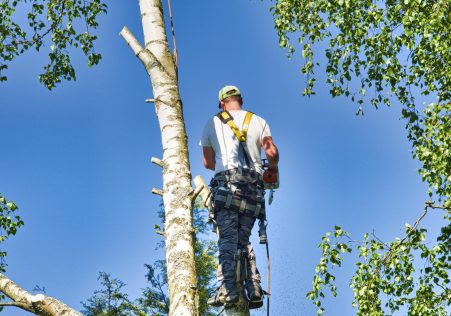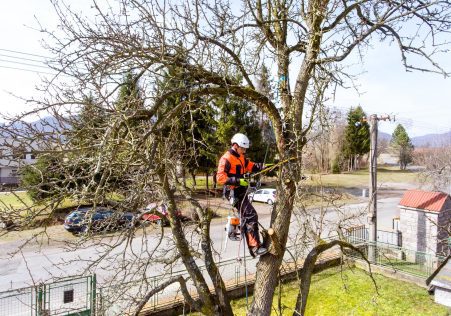Investigating the Time Frame of Root Decay in the Ground After Trimming

Tree roots play a vital role to provide support and nutrition to trees however, is there a problem when a tree is removed? How long does it take until the tree’s roots begin to begin to decay in the ground, and what effect does this have on the surrounding area? In this article, we’ll examine the process of root decay and answer the most frequently asked questions concerning the roots of trees.
Understanding the Tree Root Decay
The roots of trees can take several years to fully decompose, depending on several variables like how big the roots as well as the type of tree, as well as the environmental conditions. The process of decaying the roots is initiated immediately after a plant is cut down or falls, and is caused by a combination of elements like temperature, moisture as well as the existence of decomposers such as fungi and bacteria.
Factors that Affect Root Decay
The size of the roots: Larger roots are more likely to decay compared to shorter ones.Type species of the tree Certain species of trees have tougher, more durable roots that are slower to decay than other species.
Conditions in the environment: Roots decompose more quickly in moist, warm environments as compared to cooler, dry ones.
The Impact of Tree Root Decay
When tree roots rot and die, they release nutrients into the soil, which could be beneficial to other plants that are in the vicinity. However, decaying roots can also create issues for landscaping and structures in the surrounding area. For example, the decaying roots can cause shifting or settling of driveways, sidewalks, and other hardscaping features.
Preventing Problems from Decay
To avoid issues caused by the roots that are decaying, it is important to eliminate dead or diseased trees off your property as fast as is possible. In some instances it might be necessary to take out the roots to avoid settling or shifting of structures nearby. If you’re unsure about what to do, you might consider getting in touch with an expert tree removal service like Christchurch Tree Removal for help.
Frequently Answered Questions
How long will it take for the tree’s roots to begin to rot?
The amount of time required for roots of trees to decay in the ground may vary depending on several variables, such as the size of the root as well as the type of tree, and the surrounding conditions. On average, it can take several years for tree roots to fully decompose.
What happen to soil’s nutrients? the soil when tree roots rot?
As tree roots decay, they release nutrients back into the soil, which can be beneficial for other plants that are in the same area.
Are decaying tree roots causing problems for nearby structures?
Yes, decaying tree roots may cause settling or shifting of sidewalks, driveways, and other landscaping features. To avoid these problems it’s essential to eliminate all dead or diseased trees from your property as quickly as possible.
Conclusion
In the end, it is important to note that tree roots may take years to completely decay in the ground, and the process of decay may have both negative and positive impacts on the area around it. If you’re concerned about the decaying tree roots or require assistance in tree removal, think about contacting an experienced tree removal company such as Christchurch Tree Removal. The team we have of skilled and experienced arborists are equipped with modern equipment and tools to safely and effectively remove the trees and their roots. Contact us now by dialing 0800 500 996 for a free estimate in Christchurch.
Do not risk damaging your property or yourself by trying to cut down a tree your own. Let the experts at Christchurch Tree Removal handle it for you. Our team of highly-trained and experienced arborists are equipped with the most modern tools and equipment that allows them to effectively and safely remove the tree and its roots. Whether you need tree removal or tree pruning, trimming, or any other arborist service Christchurch Tree Removal is here to help. Don’t wait any longer and call us at 0800 500 996 for a free estimate in Christchurch. Trust the professionals of Christchurch Tree Removal to handle all your tree requirements and guarantee the safety and aesthetics on your home.





















